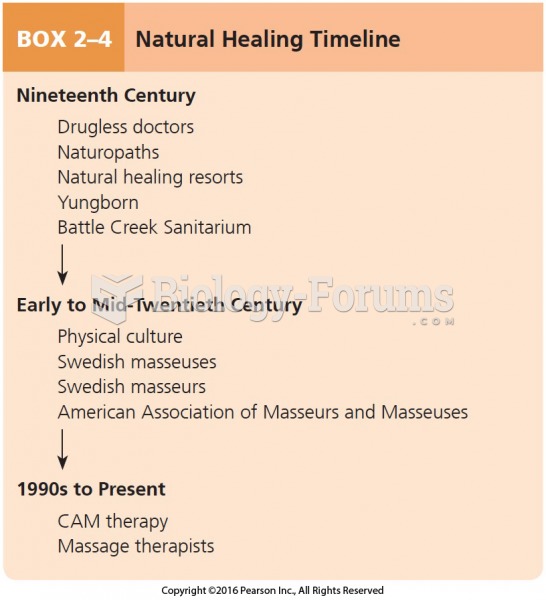|
|
|
The heart is located in the center of the chest, with part of it tipped slightly so that it taps against the left side of the chest.
Computer programs are available that crosscheck a new drug's possible trade name with all other trade names currently available. These programs detect dangerous similarities between names and alert the manufacturer of the drug.
Adolescents often feel clumsy during puberty because during this time of development, their hands and feet grow faster than their arms and legs do. The body is therefore out of proportion. One out of five adolescents actually experiences growing pains during this period.
Addicts to opiates often avoid treatment because they are afraid of withdrawal. Though unpleasant, with proper management, withdrawal is rarely fatal and passes relatively quickly.
Colchicine is a highly poisonous alkaloid originally extracted from a type of saffron plant that is used mainly to treat gout.
 Three principle forms of natural selection: (a) stabilizing selection, (b) directional selection, an
Three principle forms of natural selection: (a) stabilizing selection, (b) directional selection, an
 Because of immature visual-motor coordination, young children find it hard to throw and catch small ...
Because of immature visual-motor coordination, young children find it hard to throw and catch small ...
 Photos of starving children, such as this child in Somalia, haunt Americans and other members of the ...
Photos of starving children, such as this child in Somalia, haunt Americans and other members of the ...




